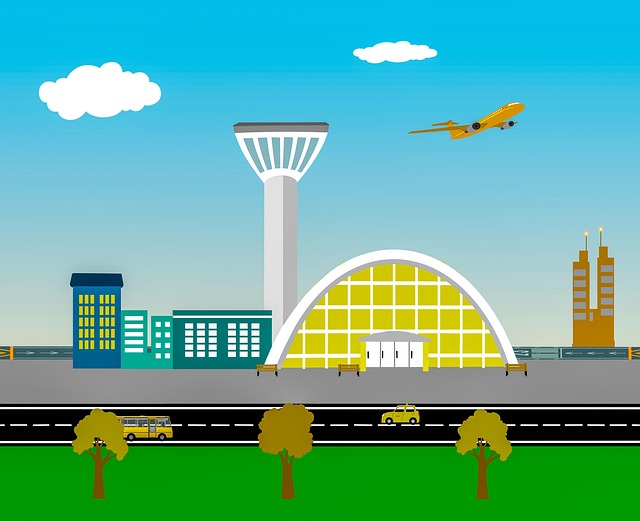Managing pigeon populations on commercial buildings in Denver requires strategic and humane bird control methods. Modern solutions include visual deterrents, noise makers, and scents. Advanced techniques like predator simulations and specialized barriers offer long-lasting relief. Local regulations and eco-friendly practices, such as regular cleaning and unattractive landscaping, are crucial for effective and sustainable bird management. Regular monitoring prevents infestations and makes long-term control more cost-effective.
In urban settings like Denver, managing bird populations, particularly pigeons, on commercial buildings is a constant challenge. This article delves into effective wildlife control strategies tailored for pigeons, focusing on understanding their behavior in an urban landscape. We evaluate various deterrent methods proven successful in commercial buildings and explore sustainable management practices. By implementing these strategies, property managers can achieve harmonious coexistence with avian neighbors while maintaining clean, safe spaces.
- Understanding Bird Control for Pigeons in Urban Settings
- Evaluating Effective Deterrent Methods for Commercial Buildings
- Implementing and Maintaining Sustainable Bird Management Strategies
Understanding Bird Control for Pigeons in Urban Settings

In urban settings, particularly in a vibrant city like Denver, managing bird populations, especially pigeons, on commercial buildings has become an increasingly important concern. Bird control for pigeons on commercial buildings in Denver involves a strategic approach to address the challenges posed by these birds in urban environments. Pigeons are known for their adaptability and can quickly turn into a persistent problem, causing damage to structures with their droppings and potential health risks associated with their presence.
Understanding effective bird deterrent systems is crucial for businesses and property managers. The goal is not just to repel pigeons but also to implement humane methods that consider the well-being of both the birds and humans. Modern solutions include visual deterrents, noise makers, and even specific scents that disrupt pigeon behavior without causing harm. By employing these strategies, Denver’s commercial buildings can create a more welcoming environment for their occupants while ensuring a harmonious coexistence with the city’s avian residents.
Evaluating Effective Deterrent Methods for Commercial Buildings

Evaluating effective bird deterrent methods is crucial for commercial buildings in Denver aiming to mitigate pigeon infestations. Traditional approaches, like visual deterrents (scare tactics) and noise makers, can be beneficial but often prove temporary solutions due to pigeons’ adaptability. For lasting results, consider more advanced options such as predator simulations (using non-lethal models of predators like falcons or owls) and physical barriers designed to prevent nesting and roosting.
In the context of bird control for pigeons on commercial buildings in Denver, understanding local regulations is vital. Some methods may be restricted or prohibited due to environmental concerns. Consulting with professionals specializing in wildlife management ensures compliance while implementing humane, effective strategies tailored to the specific needs and challenges posed by pigeon populations in the area.
Implementing and Maintaining Sustainable Bird Management Strategies

Implementing sustainable bird management strategies is an effective approach to addressing bird control issues, especially in urban areas like Denver where commercial buildings often attract large pigeons and other bird species. For bird control for pigeons on commercial buildings in Denver, property managers and building owners can employ several eco-friendly methods. One such strategy involves using visual deterrents, such as reflective materials or scarecrows, which disrupt the birds’ natural habits without causing harm. Regular cleaning of building ledges and roofs is another essential practice to remove bird droppings, as this prevents nests from forming and discourages pigeons from returning.
Additionally, maintaining a clean and tidy environment around the building’s perimeters can reduce the appeal of commercial spaces for nesting birds. Planting specific types of trees and shrubs that are less attractive to pigeons can also be part of the solution. Regular monitoring and quick response to any bird accumulation issues ensure that small problems don’t turn into large-scale infestations, making it easier and more cost-effective to manage bird control for pigeons on commercial buildings in Denver over time.
Wildlife control, particularly bird management, is essential for maintaining urban environments, especially in Denver’s commercial sector. By understanding the specific needs of pigeon control in these settings, businesses can employ effective, sustainable strategies. Evaluating various deterrents and implementing tailored solutions ensures a balanced approach that respects both property protection and the well-being of local bird populations. This holistic view promotes an environment where commercial buildings coexist harmoniously with their feathered neighbors. For Denver businesses facing pigeon challenges, adopting these strategies is a step towards a cleaner, more harmonious urban landscape.
